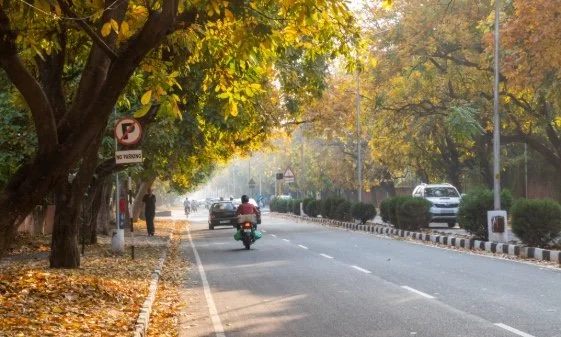Centre Plans to Take Full Control of Chandigarh
Proposed Constitutional Amendment Cuts Punjab Out of Its Capital Using Article 240
November 23, 2025
The Centre has proposed to bring Chandigarh under Article 240 and appoint a separate Lieutenant Governor, giving itself full control over a city built as Punjab’s capital. The President could make laws without consulting Parliament or the state, effectively cutting Punjab out. This calculated political move rewrites the existing understanding and serves the ruling party’s interests by sidelining Punjab.
The government plans to introduce the Constitution (131st Amendment) Bill, 2025 in the Winter Session of Parliament to bring Chandigarh under the ambit of Article 240, as reported by The Indian Express. Article 240 allows the President to make laws for certain Union Territories without legislatures.
To understand why this is such a serious move, let’s go back to how Chandigarh came into being.
After Partition in 1947, Punjab lost its capital, Lahore, to Pakistan. The Indian government decided to build a new capital from scratch, and that city was Chandigarh. It was carved out of Punjabi land, planned with public money and developed entirely as the capital of Punjab.
India’s first Prime Minister Jawaharlal Nehru saw Chandigarh as a powerful symbol of a new, modern India. Nehru famously called Chandigarh “unfettered by the traditions of the past.” He wanted it to represent a clean slate, a space not weighed down by colonial architecture or feudal design. It would be planned from scratch, embodying the values of the newly independent nation: progress, equality and reason. He believed India needed to build with a scientific mindset. Chandigarh would be the blueprint, a planned city based on grids, zoning, and modern infrastructure. It would not grow chaotically like older Indian cities but instead reflect rational order and functional beauty.
Nehru personally invited Swiss-French architect Le Corbusier to design the city, as Punjab’s capital. It was never meant to be a neutral zone or a Union Territory. It was Punjab’s.
That changed in 1966, when the state of Haryana was carved out of Punjab. Since both Punjab and Haryana needed a capital, the Centre stepped in and declared Chandigarh a Union Territory to be shared by both states for the time being. But it also made a clear promise, that Chandigarh would eventually be handed over to Punjab, and Haryana would build its own capital. That promise was made more than once, including in writing in the Rajiv-Longowal Accord of 1985, which said Chandigarh would be given to Punjab on January 26, 1986.
That promise was never kept.
Punjab has continued to hold some connection to Chandigarh. The city’s official Administrator has always been the Governor of Punjab. Panjab University, PGI, and several public institutions in Chandigarh are tied to Punjab’s laws and education system. The language spoken, the culture, the public life, all of it is Punjabi. It has always functioned as Punjab’s capital.
Now, by bringing Chandigarh under Article 240, the Centre appears to be making it easier to cut Punjab out completely. Article 240 applies to places like Lakshadweep and the Andaman and Nicobar Islands, regions with no historic ties to any state. Chandigarh is nothing like them. It was created for Punjab, lies within its territory and has always functioned as its capital.
By treating Chandigarh like one of those far-off islands, the Centre seems to be sending the message that it no longer recognises Punjab’s special stake in the city. Once Article 240 applies, the President (which means the Centre) can make laws for the city without consulting Parliament or any state government.
Just days before this announcement, Punjab Chief Minister Bhagwant Mann had once again raised the demand for Chandigarh to be formally transferred to Punjab. The Centre didn’t respond with dialogue. It responded with this Bill.
Punjab has already seen the Centre interfering in other areas, whether it’s appointments at Panjab University, control over river water, or funding for state institutions.
The Bharatiya Janata Party (BJP), which leads the ruling coalition at the Centre, has never held significant electoral ground in Punjab. Its former alliance with the Akali Dal in this state collapsed. It lost ground after the farmers’ protests. Now, with no political foothold in the state, it seems to be using administrative tools to assert control in ways it cannot do democratically.
If the BJP had genuine concerns about governance in Chandigarh, it could have opened a conversation with both states. It could have offered a neutral way forward. Instead, it plans to bring a Bill to Parliament with no warning and no consultation. It is using its majority in the Lok Sabha to pass changes that directly hurt a state where it has no mandate.
It’s also important to ask what problem is this solving? Chandigarh is not in chaos. It is well-run, with functioning infrastructure, a clear administrative system and a strong civic structure. There is no urgent crisis that justifies a constitutional amendment.
The decision also sets a dangerous precedent. If the Centre can take away a state’s capital, despite decades of promises, what else can it do? What stops it from doing the same to other states that challenge it politically? If constitutional tools like Article 240 are used to push states out of decisions, then federalism in India becomes a hollow word.
You have just read a News Briefing by Newsreel Asia, written to cut through the noise and present a single story for the day that matters to you. Certain briefings, based on media reports, seek to keep readers informed about events across India, others offer a perspective rooted in humanitarian concerns and some provide our own exclusive reporting. We encourage you to read the News Briefing each day. Our objective is to help you become not just an informed citizen, but an engaged and responsible one.

